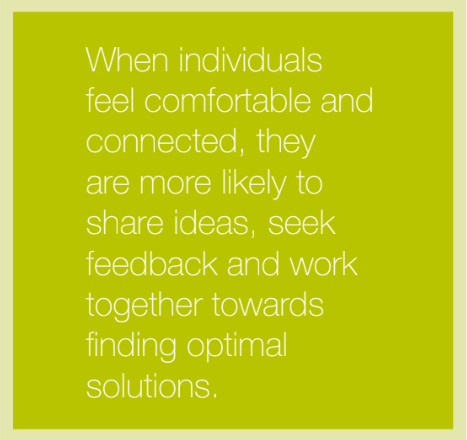Find Humour
The Habit of Mind known as, “Finding Humour,” may seem light-hearted but its importance in learning
and problem-solving cannot be underestimated. Finding humour in challenging situations or complex problems can significantly enhance one’s ability to learn and solve those problems effectively. Here are six reasons this habit is essential for becoming a great learner and problem solver.
1. Promotes Thinking Flexibly
Understanding humour requires thinking flexibly— finding novel relationships, observing oddities in images and making analogies. Creators of The Habits of Mind, Professor Art Costa and Dr Bena Kallick,
Find Humour Enhance Problem-Solving report that people who can find humour can often see a situation from a new perspective or come up with the unexpected. They give an example as follows:
One student asks another, “Is it time yet for us to eat?”
Response, “No.”
The student asks in another three seconds, “How about now?”
The immediacy of the reaction and the surprising shift from accepting the answer comes as a surprise. They both laugh. They also are managing their impulsivity as they wait for meal time.


2. Powerful Stress Reliever
Humour also acts as a powerful stress reliever. When faced with difficult tasks or complex problems, feeling overwhelmed or anxious is common. Comedy has the incredible ability to diffuse tension and reduce stress levels. By finding humour in challenging situations, learners can maintain a more relaxed and positive mindset, which allows for improved cognitive functioning and creativity. It opens up the possibility for fresh perspectives and new insights.
3. Fosters Resilience
The ability to find humour fosters a sense of resilience. Learning and problem-solving often involve making mistakes, encountering setbacks or facing unexpected hurdles. Learners can develop a more resilient attitude by approaching these situations with spirit. They learn not to take themselves too seriously and become more willing to take risks and explore alternative solutions. This resilience allows for adaptability and the ability to bounce back from failures, ultimately leading to more effective learning and problem-solving outcomes.
4. Promotes Curiosity
Finding humour can promote a sense of curiosity and exploration. When we see something amusing,
our brains become more engaged and receptive to new information. Humour encourages us to question
assumptions, think outside the box and seek alternative perspectives. It stimulates creativity and imagination, leading to innovative solutions and enhanced problem- solving abilities. By finding humour, learners can cultivate a mindset that encourages curiosity and fosters a willingness to explore unconventional approaches.
5. Facilitates Collaboration
Social connections and collaboration may be facilitated by humour. Learning and problem-solving are rarely solitary endeavours. They often require collaboration, teamwork, and effective communication. Humour helps build rapport, creates a positive learning environment and promotes healthy learner relationships. It can break down barriers, improve interpersonal dynamics and encourage open mindedness. When individuals feel comfortable and connected, they are more likely to share ideas, seek feedback and work together towards finding optimal solutions.
6. Makes Learning More Enjoyable and Memorable
Humour makes the learning process more enjoyable and memorable. When you find something funny, you are more likely to pay attention, retain information and engage with the subject matter. It enhances your ability to focus and absorb new knowledge. Humour adds an element of fun and excitement, making the learning experience more pleasurable and memorable. By associating positive emotions with learning, individuals are more motivated to continue exploring, discovering and solving complex problems.
Embracing the Habit of Mind, “Find Humour,” is not merely about laughter and amusement. It plays a crucial role in approaching challenges and problems with a fresh perspective, opening themselves up to new possibilities and ultimately becoming more effective learners and problem solvers. How might you use the power of laughter and finding humour to pursue knowledge and problem-solving in your classroom?
Published on Monday, May 22nd, 2023, under Habits of Mind
